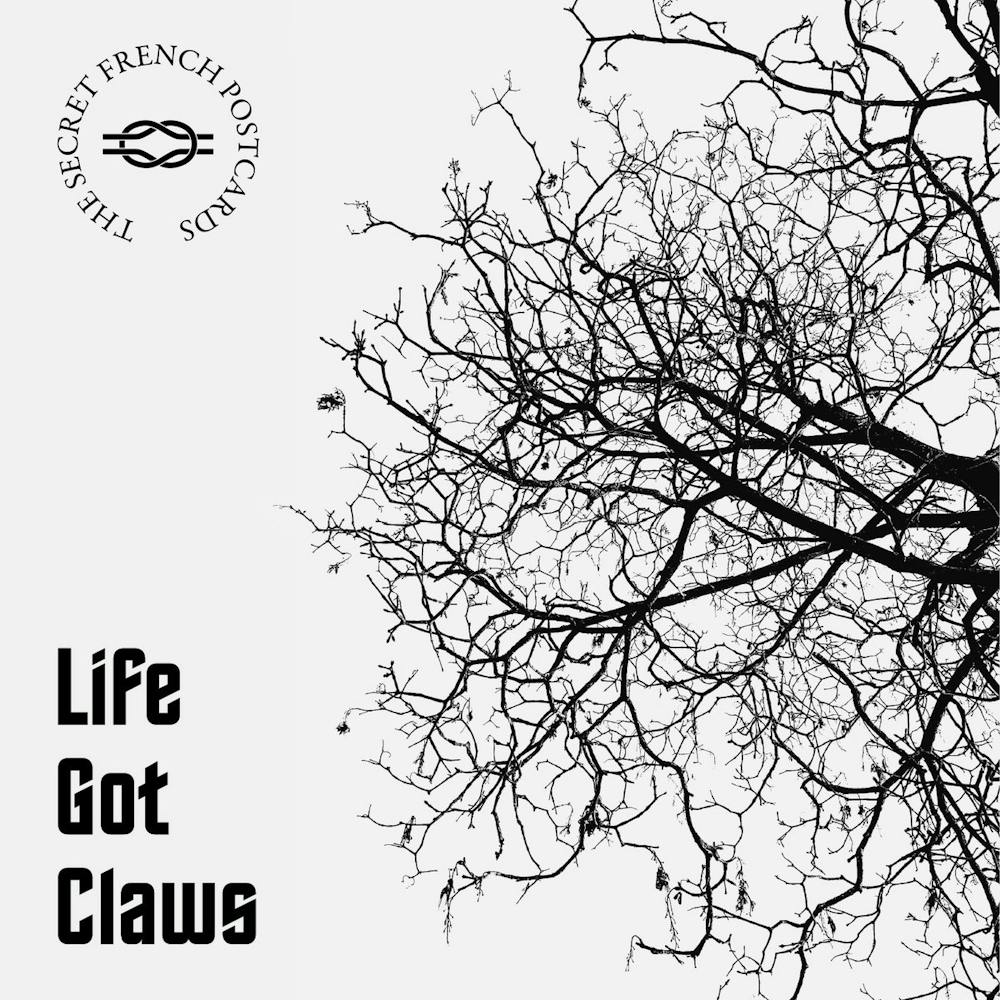Life Got Claws is the fourth album released by Swedish band The Secret French Postcards. Formed in 2016, this group aptly proclaims their style to be “post-punkish;” while their use of driving bass lines, drum machines, muttering baritone vocals, and icy synthesizers reflects inspiration drawn from classic 80s post-punk, the distant guitars drowned in wet effects and feedback contribute to a soundscape which merits categorization alongside dream pop or shoegaze. This latest release by the band most clearly exemplifies their approach to music. The first thing one may notice about the album is the unintelligibility of the vocals. Partnered with an apparent lack of any published lyrics, this aspect of the record tops off the air of mystery built into it by the rest of the mix. However, whereas artists who construct similar ethereal soundscapes may intentionally forego lyric-writing to utilize vocal performance as an instrument itself instead, it sometimes seems as if The Secret French Postcards intended for there to be lyrics to the record; listeners may be taken aback by their sudden ability to recognize the words “smell of you” during the track Don’t Fear Me, which are oddly prominent in the mix among other instances of lyrical discernibility. While the washed-out nature of the vocals fits the general vibes of the album, its execution is carried out in a manner less indecisive between being audible or dreamy.
Such critique of the delivery and mix of the vocals is not to suggest, however, that the band does not otherwise establish a wonderfully grim mood with resounding success. The album’s instrumentals smoothly weave the listener through peaks and troughs of hopefulness and despair. Tracks that evoke typical gothic feelings of melancholy and urgency - such as the aptly-titled track Sad Like You, Go Away, and A Searching Kiss - are interspersed around lighter, more danceable tracks - Dreaming at Last and Sides come to mind - in a manner that manages not to be jarring to the listener. The band creates this consistency around changing emotions by tweaking the arrangements of each track in subtle ways. The same drum samples are used throughout the record, and no distinguishable changes in effects on the samples are made. The only varying factor in the drums between songs, their rhythmic structure, significantly contributes to the flow of mood between each track; for instance, the danceability of the drums toward the end of The Way You Move gives way to their punchier and more minimalistic feel at the beginning of the more urgent Parasite. Built onto the drums are the bass, lead guitar, and synths, each with melodic characters that compete for the listener’s attention. Each gains prominence with near-imperceptible variations in effects and presence in the mix. Generally, the band drowns out the guitars in more reverb and chorus during the album’s lighter moments and utilizes cold-sounding synth pads in its darker moments. These emotive instrumental mixtures of each track of Life Got Claws make up for the fact that the album falls into the common post-punk pitfall of arguably uninteresting and washed-out vocals. On the whole, the record is solidly gloomy and competently arranged, and sometimes that is all one needs out of music.





